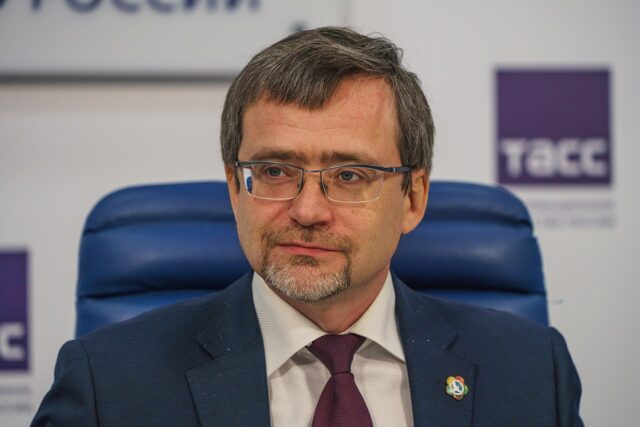Continuation
 Бизнес код
Бизнес код
The previous article «Russia-Turkey: Revival of Dialogue« covered the period before the II World War.
Following Germany’s assault on the Soviet Union in 1941, the secret negotiations and talks between Adolf Hitler and Vyacheslav Molotov were revealed, marking a turning point in Russia – Turkey relations. During these talks, it was revealed that Hitler had proposed to Molotov that they substitute the Montreux Convention with one that would be more beneficial to the USSR. Not fully satisfied with this offer, Molotov also requested the establishment of a Soviet military base at the Straits. This had greatly damaged USSR – Turkey relations and acted as a catalyst for Turkey getting closer to the western countries as it now regarded the USSR as a threat to its sovereignty. Ankara was now looking at Moscow through the lens of history and was responding in terms of an older realpolitik. The full-scale Nazi invasion of the Soviet Union (Operation Barbarossa) was hailed as a victory by many in Ankara. Turkey grew closer to the western bloc with each passing year.
Turkey’s ambassador to the Soviet Union, Selim Sarper, was informed by Molotov on March 19, 1945, that the Soviet Union would not be extending the «Treaty of Friendship and Non-aggression» signed in 1925. Molotov pointed out that the Treaty had been in effect for 20 years and that »major changes» were needed to bring it up to date. Three months later on June 7, 1945, Molotov and Sarper had a meeting in which the Soviet Union’s infamous «demands» were revealed. First, the «return» of the provinces of Kars and Ardahan to the Soviet Union; second, the allocation of bases to the Soviet Union for the «joint defence» of the Straits of Istanbul and Canakkale; and lastly, a bilateral agreement on the future status of the Straits as well as an amendment to the Montreux Convention. On June 18, during a second conference, Molotov emphasized once again that the USSR would not continue negotiations unless these topics were addressed. The Turkish government openly dismissed these demands and could no longer uphold the image of the USSR being a «sincere friend» of Turkey as many of the issues between the two nations had become public knowledge.
Soviet attention to the Straits problem was renewed in 1945 and 1946, following the Allied victory over Nazi Germany. Diplomats from the United States and Turkey discussed the Straits issue regularly throughout the year 1946. The Soviet Navy was becoming more active in the Black Sea, especially near Turkish shores. This increasing Soviet military presence was not limited to the sea as they also placed a significant number of ground troops in the Southern Balkans.
As Soviet pressure mounted; Turkey quickly turned to the United States for help. President Truman dispatched a navy task group to Turkey. The United States and British administrations both reiterated their backing for Turkey on October 9. The US president had developed the famous ‘Truman Doctrine’ which aimed to prevent Soviet influence from spreading to Turkey and Greece. In the new world order of post-WWII, countries were divided into two poles: US-led capitalist and Soviet-led ‘communist’. As Turkey had considered the USSR under Stalin’s rule as a threat to its national security, it chose the former.
For the first time since its founding, Turkey abandoned its neutrality and accepted economic and defense aid from the USA in the amount of $100 million in 1947 as part of the Truman Doctrine. This was followed by Turkey joining NATO (an organization founded purely to oppose the Soviet Union) on 18 February 1952 and signing the Balkan Pact in 1953 (a treaty signed between Balkan nations to serve as a deterrent against Soviet expansionism). From this point onward, Turkey adopted a fully anti-Soviet, pro-Western attitude – deviating significantly from the foreign policy strategies devised by Ataturk.
To be continued …


